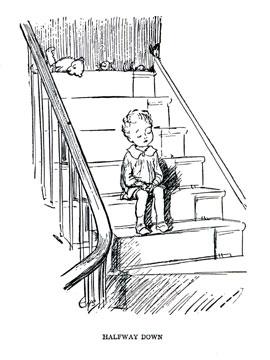Adrift! A little boat adrift!
And night is coming down!
Will no one guide a little boat
Unto the nearest town?
So sailors say — on yesterday —
Just as the dusk was brown
One little boat gave up its strife
And gurgled down and down
So angels say — on yesterday —
Just as the dawn was red
One little boat — o’erspent with gales —
Retrimmed its masts — redecked its sails —
And shot — exultant on!
~ Emily Dickinson
(The Poems of Emily Dickinson, #6)
Now that I have a Kindle and can read for hours on end without bothering my eyes, I have delved into a huge comprehensive biography of the life of Emily Dickinson, My Wars Are Laid Away in Books: The Life of Emily Dickinson. The above poem struck a chord with me.
What I’ve been learning is that Emily grappled with an exhausting spiritual struggle during her childhood and young adulthood. One by one more and more of her family members and friends experienced evangelical conversions each time a revival made its way to her mother’s church in Amherst, Massachusetts. Emily was never moved to convert, winding up a solitary holdout, and I suspect it was the hypocrisy and inconsistencies in the dogma as presented by her teachers and ministers that never sat well with her.
Some keep the Sabbath going to Church —
I keep it, staying at Home —
With a Bobolink for a Chorister —
And an Orchard, for a Dome —
~ Emily Dickinson
(The Poems of Emily Dickinson, #236)
Emily found spiritual fulfillment and ecstasy in nature. I think it can be found in the creative arts, too, and in healing. I will read on, as I just got to the “Adrift!” poem yesterday, but my feeling is that once she made peace with this realization, she was able re-trim her masts, re-deck her sails, and get on with her true vocation, her poetry, her spiritual expression, her own way of worshiping.
As a child my intuition rebelled against my father’s atheism. The first chance I got I latched on to a religion with just as much oppressive dogmatism as the scientific atheism from which I was trying to escape. But while ‘gurgling down’ in my spiritual struggle, it slowly dawned on me that religion and science are simply different ways of trying to make sense of and explain the world and the universe. The assumptions of both can be terribly flawed and misguided. Organized religion and organized science can both be dogmatic and self-righteous. People who worship science, in my opinion, give up their own experience of the divine to the men in lab coats, our modern-day priests. Ideally there is a balance between Logic and Wonder, however.
When I started reading Emerson and Dickinson I found myself home at last with the ideas of transcendentalists:
The transcendentalists felt the presence of God in their intuition, but they advised that intuition should be guided by reason, and not follow its own course unaided. They discerned that God speaks directly to the self within us. They stressed the value and importance of personal mystical experience over beliefs, doctrines, rituals, and institutions. All their insights derived from their inner life. Their movement was a reaffirmation of the inner way of introversion or interiority.
~ Wayne Teasdale
(The Mystic Heart: Discovering a Universal Spirituality in the World’s Religions)
How I admire Emily for holding on to her inner life!


